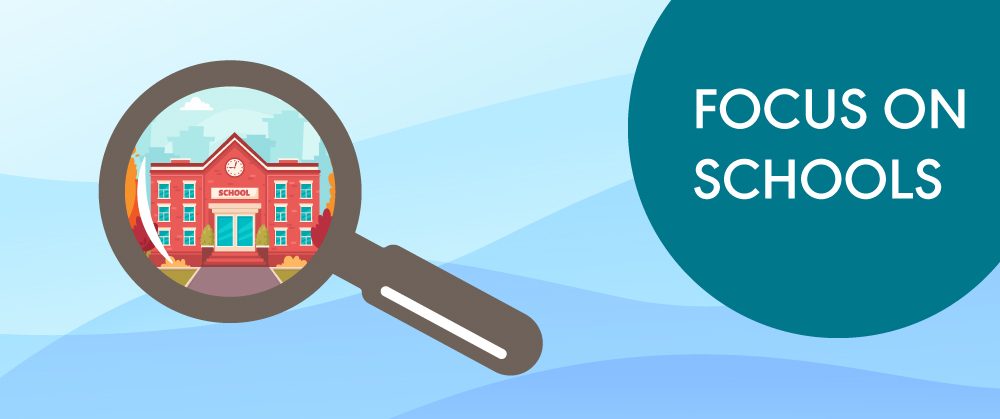More than half of ASHA’s speech-language pathologists (SLPs) work in schools (ASHA, 2021). Every year, the ASHA journals publish hundreds of articles showcasing the latest research that school-based SLPs and audiologists—including research practitioners—can use in their day-to-day work.
To make sure that ASHA members working in the schools have access to the latest evidence-based practice, we’re highlighting some recent articles published in four of ASHA’s journals below. These articles were published between May and July 2022, so dive into some of the most up-to-date information available!
Reading and Writing
A Meta-Analysis of Phonemic Awareness Instruction Provided to Children Suspected of Having a Reading Disability: In this article, the authors extracted data from 138 manuscripts to answer one question: Can teaching that is focused on phonemic awareness help children with a suspected reading disability succeed? The results showed that children of all ages can benefit from phonemic awareness instruction.
Working With Struggling Mid-Elementary Readers and Writers: A Protocol for Speech-Language Pathologists Based on Reading Fluency and Writing/Reading Integration: This article looks at one protocol that SLPs can use with older struggling readers—in this case, third graders. The authors (a) show how SLPs can use a combination of clinical reasoning/experience and research to shape targets and (b) provide step-by-step procedures that clinicians can use to address the literacy needs of students on their caseloads.
Children With Language Impairments
Teacher Educational Decision Making for Children With Specific Language Impairment: In this article, the authors shared a number of scenarios with teachers. In these scenarios, students presented with specific language impairment. Although the teachers recognized the students’ language needs, few recommended speech-language pathology services. The authors suggest that SLPs and teachers work together to benefit all students.
Peer Effects in Language Therapy for Preschoolers With Developmental Language Disorder: A Pilot Study: This pilot study shows looks at the progress of children with developmental language disorder in language therapy when paired with a peer with typically developing language. Ultimately, the researchers determined that language development could be positively influenced by the skills of their peers. The authors highlight the need for further research in order to determine the specific role of these peers.
More for School-Based SLPs and Audiologists
School-Level Predictors of Speech-Language Therapy Enrollment: With an eye toward managing SLPs’ caseloads in schools, this article looked at school factors that can help predict how many children will enroll in speech-language pathology services. The authors discuss how school administrators and other decision makers can use this information.
Speech Sound Disorder Treatment Approaches Used by School-Based Clinicians: An Application of the Experience Sampling Method: Children with speech sound disorders make up a large portion of school-based SLPs’ caseloads. In this article, the authors found that SLPs are aware of many treatment approaches, but they use only a few in school-based settings. The authors discuss barriers that many school-based SLPs may face in implementing new and evidence-based research into their practice—and how clinicians can find the tools to stay up-to-date.
Development and Evaluation of Pediatric Versions of the Vanderbilt Fatigue Scale for Children With Hearing Loss: Listening-related fatigue is a major problem for children with hearing loss, but there isn’t currently a measure of fatigue for experts to use. In this article, the authors describe the development, evaluation, and validation of a scale that they hope can help capture the broader implications of childhood hearing loss.
Supporting ASHA Members in the Schools
These articles are just a small sample of the resources available for school-based clinicians in the ASHA journals. With more than 4,500 articles, and new articles added as they’re published, the ASHAWire School-Based Settings topic page is your one-stop source for resources from all five of ASHA’s journals.
In addition, whether you’re new to the schools or have been working for decades, ASHA’s information for school-based SLPs has resources that you can use. You can read advocacy information, policy, and guidance, and you have access to live chats and town halls.
We know that ASHA members in the schools face unique challenges every year, and we hope that the resources we’ve highlighted here can help you face these challenges head-on. Thank you so much for all that you do!
References
American Speech-Language-Hearing Association. (2021). Profile of ASHA members and affiliates, year-end 2020. https://www.asha.org/siteassets/surveys/2020-member-and-affiliate-profile.pdf







